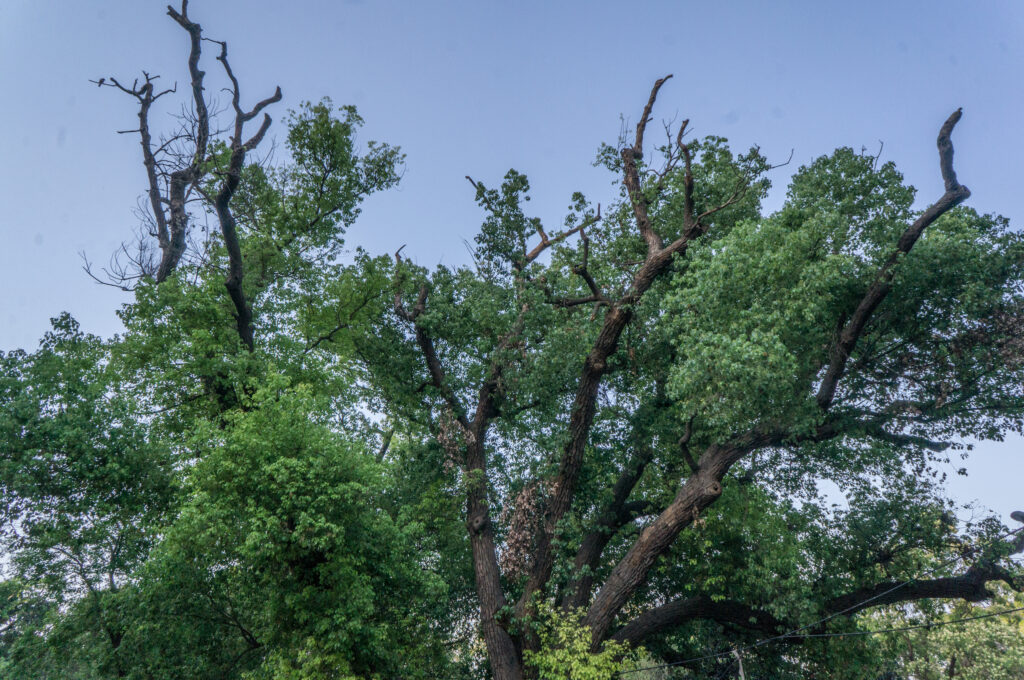Asia Forum Art and Ecologies Roundtables: Land and Land Use
Panel
Many LB03 artworks addressed land degradation due to anthropogenic activities. Hence, most of the speakers in this roundtable were LB03 artists so they could share their art, experience, and overall practice. The session was held on 6th November 2024 at Lahore University of Management Sciences. Hammad Nasar and Ming Tiampo moderated the session and began by discussing the significance of land acknowledgments, emphasizing the importance of recognising relationships to land beyond extraction and ownership. More than 200 students, staff and external guests attended the roundtable. The conversation expanded to the idea of building affection for the land and fostering community connections, drawing attention to the importance of memory, history, and grassroots practices in shaping our understanding of the land.
Below is a summary of the viewpoints shared by the speakers:
Farida Batool showed her LB03 artwork that critiques colonialism and patriarchy through a public art piece in GPO Square, a barren area on Mall Road. Farida shared that the square, built atop the Orange Metro Station, was left devoid of greenery due to its concrete structure. Her design contrasts colonial and indigenous elements: a Victorian garden pattern and a colonial-era marble fountain sliced in half, with indigenous plants surrounding it. This piece challenges the colonial legacy, symbolising the rise of Indigenous growth amidst colonial remnants.
Köken Ergun shared clips from his LB03 collaborative animation project China Beijing I Love You and real footage to relate his work to extractivism and the impact of colonial and neocolonial policies on rare earth mineral extraction. The film explores the environmental and human costs of nickel and cobalt mining, particularly in Indonesia and the Democratic Republic of Congo, extracted for modern technology. Köken gave voice to these minerals, portraying them as exiled entities, and highlighting the labor exploitation involved, such as child mining in Congo. By using animation instead of traditional documentary methods, Köken reflected that he emphasizes the power of metaphor and abstraction to address complex issues of land, labor, and exploitation.
Wulandani Dirgantoro and Dicky Takndare from the Udeido Collective presented their work at the LB03, emphasizing cultural revival and political activism in West Papua. Dicky discussed the collective’s efforts in the region to bridge generational gaps, where they engage both youth and elders in projects like reconstructing cultural learning spaces. Their art addresses the challenges faced by West Papuans, navigating sensitive political issues associated with their land through non-violent means. Wulan elaborated on the Koreri Projection, a piece inspired by Christian pilgrimage, symbolizing the balance between activism and cultural revival. Udeido Collective fosters dialogue about self-determination and societal issues while integrating local communities into their artistic process.
Abraham Oghobase shared how his work discusses the history and impact of tin mining on the landscape of Nigeria. His art practice explores colonial history, land, and representation through innovative uses of photography and installation. During his talk, Abraham shared that his work challenges the limitations of the two-dimensional medium, incorporating collage, layering, and archives to deepen the narrative of land extraction, ownership, and exploitation. Abraham also reflected on the resilience and agency of marginalized communities, as shown in his work through the intersection of archival images and metaphorical diagrams which highlight the nuanced histories embedded in the land and its representation.
Elisa Silva shared the way neighborhoods have become segregated due to various socio-economic reasons. She reflected on her work with la Casa de Todos, which she founded in Caracas, Venezuela, to address and seek to overcome urban segregation to transform the perception of the El Guaire River in Caracas, a waterway historically seen as a neglected and polluted channel. Elisa shared that she began by creating an extensive archive to reframe the river’s narrative, collaborating with a multidisciplinary team to document the river’s hidden history. She engaged local communities, especially children, through workshops and art projects, encouraging them to reimagine the river as a public space or “commons.” In 2023, after extensive lobbying, Elisa secured funding to restore some of its value and connection to the city.
The Asia Forum for the Contemporary Art of Global Asias organized four (4) roundtables during the Climate Congress to initiate a discourse on the role of arts in the environment. The panelists shared the way their work with communities, organizations, land use practices and publications relate to ecologies and sustainable futures. The discussions explored how their work relates to human or more than human factions, and how they understand the natural environment from their perspective. Conceived by Annie Jael Kwan in 2021/22, Asia Forum provides opportunities for sustained dialogue on contemporary issues and artistic practices in Asia.
Location: Lahore University of Management Sciences (LUMS)
Date: November 6

